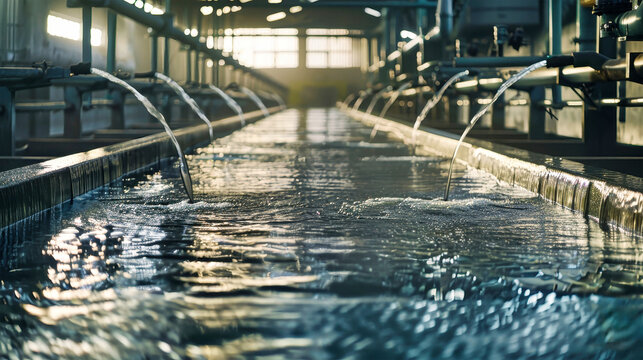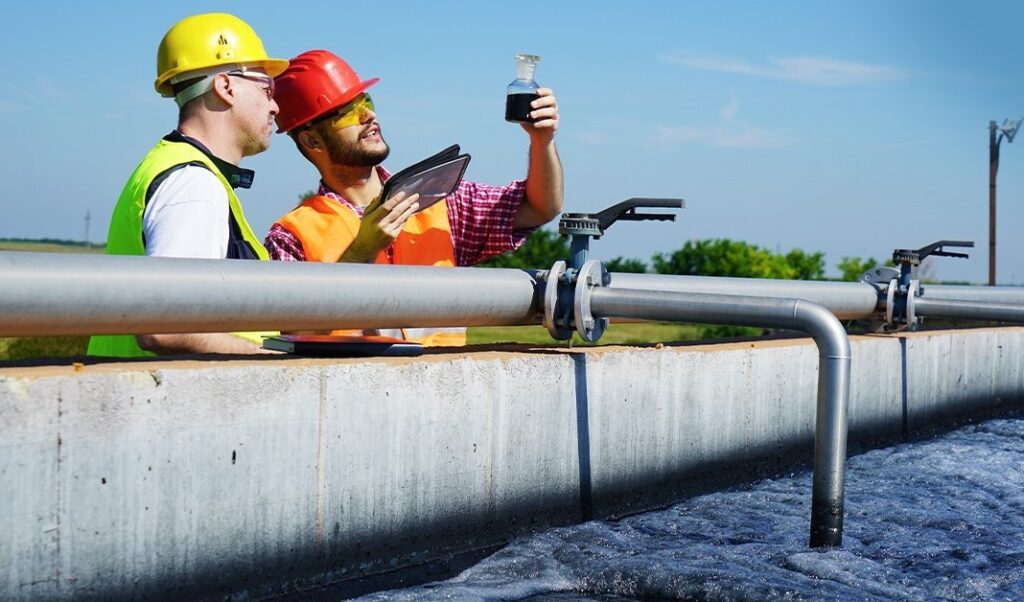
Introduction:
Water quality is crucial for industrial operations, impacting everything from product quality to equipment longevity and regulatory compliance. However, industries often face significant challenges in maintaining high water standards. Addressing these challenges requires a comprehensive understanding of common issues and the implementation of effective solutions. This article explores prevalent water quality problems in the industrial sector and offers strategies to overcome them.
Common Water Quality Issues in Industries:
1. Contamination from Chemicals and Heavy Metals
Industrial processes frequently use or generate chemicals and heavy metals that can contaminate water supplies. Contaminants such as lead, mercury, and chromium can enter water systems through runoff or discharge. This not only poses risks to human health but can also damage equipment and disrupt operations.
Solution: Implementing rigorous filtration and treatment systems is essential. Advanced technologies like reverse osmosis, ion exchange, and activated carbon filtration can effectively remove these contaminants. Regular monitoring and maintenance of these systems ensure they operate efficiently and address emerging contamination issues.
2. Microbial Contamination
Microbial contamination, including bacteria, viruses, and protozoa, can compromise water quality. Industries that rely on water for cooling, processing, or cleaning are particularly vulnerable to microbial issues. Contaminated water can lead to production downtime, safety hazards, and regulatory violations.
Solution: Regular disinfection using chlorine, ozone, or ultraviolet (UV) light can effectively control microbial contamination. Incorporating routine microbial testing and maintaining a clean water system infrastructure helps prevent outbreaks and ensures ongoing water safety.
3. Scaling and Corrosion
Water used in industrial processes often contains minerals like calcium and magnesium, which can lead to scaling in pipes and equipment. Conversely, corrosive water can damage infrastructure, leading to leaks and reduced operational efficiency.
Solution: Water softening systems can mitigate scaling by removing excess minerals. Corrosion inhibitors and regular maintenance of equipment can help manage and prevent corrosion. Additionally, monitoring water chemistry and adjusting treatment protocols accordingly are crucial for maintaining system integrity.
4. Temperature Variations
Temperature variations in industrial water can affect both process efficiency and water quality. High temperatures can accelerate chemical reactions and microbial growth, while low temperatures might affect the solubility of gases and chemicals.
Solution: Implementing temperature control systems, such as heat exchangers and chillers, helps maintain optimal water temperatures. Regular monitoring of water temperature and adjusting treatment processes to account for temperature changes are essential for consistent water quality.
5. pH Imbalances
Water pH levels that deviate from the neutral range can affect industrial processes and equipment. Acidic or alkaline water can corrode metal surfaces, impact chemical reactions, and alter the effectiveness of treatment chemicals.
Solution: pH adjustment systems, such as acid or base feeders, can help maintain stable pH levels. Regular pH monitoring and adjustment based on process requirements ensure that water remains within the desired pH range for optimal performance.

Strategies for Maintaining High Water Standards:
Regular Monitoring and Testing
Consistent monitoring and testing of water quality parameters are essential for early detection of issues. Implementing automated monitoring systems can provide real-time data and enable prompt action to address any deviations from quality standards.
Employee Training
Training staff on water quality management and the operation of treatment systems ensures that employees are well-equipped to handle water-related issues. Regular training sessions and updates on best practices help maintain high standards.
Compliance with Regulations
Adhering to local and international water quality regulations and standards is crucial for ensuring compliance and avoiding legal issues. Keeping up-to-date with regulatory changes and incorporating them into water management practices is essential.
Investing in Technology
Investing in advanced water treatment technologies can enhance the effectiveness of water quality management. Technologies such as membrane filtration, advanced oxidation processes, and smart sensors can improve water quality and operational efficiency.
Sustainable Practices
Adopting sustainable water practices, such as recycling and reusing water, can reduce the demand on external water sources and minimize waste. Implementing water-saving technologies and promoting conservation within industrial processes contribute to overall water quality and sustainability.
Conclusion:
Addressing water quality challenges in the industrial sector requires a proactive approach, combining advanced technologies, regular monitoring, and effective management practices. By understanding common water quality issues and implementing targeted solutions, industries can maintain high water standards, ensure operational efficiency, and comply with regulatory requirements. Prioritizing water quality not only safeguards human health and equipment but also supports sustainable industrial practices and environmental stewardship.


